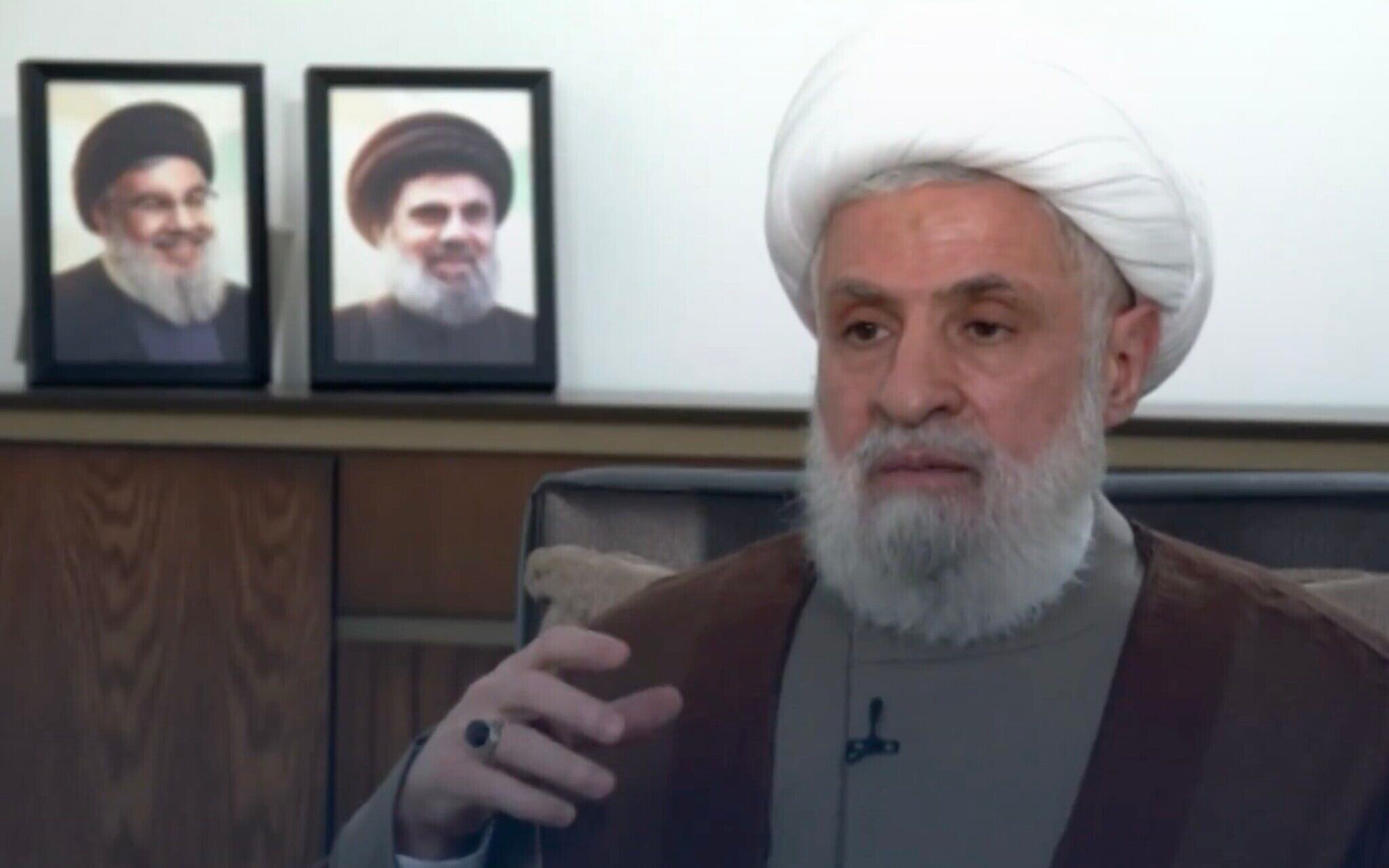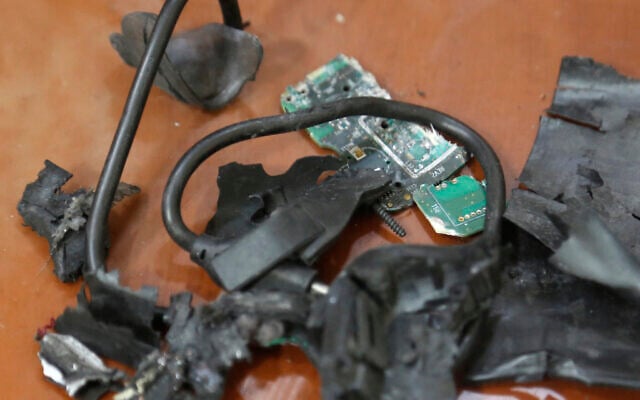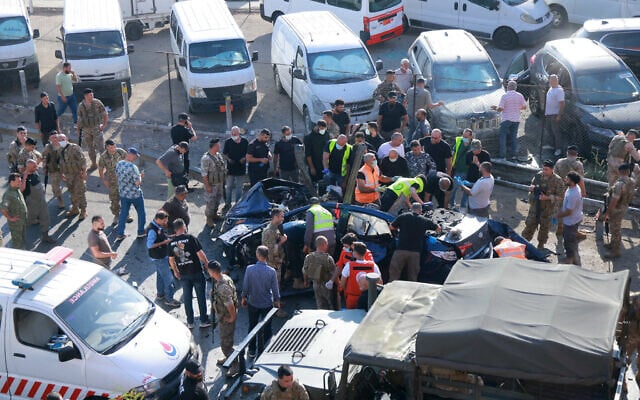



Hezbollah leader Naim Qassem admitted that the Lebanese terror group drastically underestimated the extent of Israel’s surveillance capabilities in the run-up to the pager operation last September, when thousands of beepers used by Hezbollah operatives exploded across Lebanon, injuring thousands and killing dozens.
In an interview released Tuesday with the pro-Hezbollah al-Mayadeen news outlet, Qassem said an investigation in the wake of the pager operation uncovered serious flaws in Hezbollah’s procurement process, dating back more than a year.
“We didn’t know the supply chain had been exposed,” he said.
He said that although Hezbollah’s security checks failed to find the explosives that had been placed within each individual pager, operatives began suspecting something was wrong with them in the days leading up to the attacks.
“There were efforts to examine the pager differently, including attempts to break it open, prompted by some anomalies that raised questions,” he said, suggesting that those efforts may have prompted Israel to detonate the pagers sooner than planned.
Qassem, who took over as the leader of the Iran-backed terror group following the assassination of his predecessor Hassan Nasrallah, also conceded that Hezbollah had no idea that Israel’s surveillance capabilities were as advanced and far-reaching as they are.
He said they were aware that there had been possible wiretapping but “did not realize the extent — that it was near-total and very extensive.”
The Hezbollah chief estimated that Israel has been collecting data through aerial surveillance for the past 17 years — since the end of the Second Lebanon War — and that the terror group “couldn’t grasp how deep” it went.
He denied, however, that there were any serious cases of Israeli spies infiltrating Hezbollah’s senior ranks, saying no evidence had so far been uncovered of “vast human infiltration.”
The pager attack marked the opening blow in an Israeli military campaign against Hezbollah, following nearly a year of cross-border skirmishes that began when the terror group began carrying out solidarity attacks a day after its ally Hamas’s October 7, 2023, onslaught. The fighting ended in November with a US-brokered ceasefire deal.
In the al-Mayadeen interview, Qassem explained Hezbollah’s decision to launch near-daily attacks on Israel in wake of the Hamas attack rather than a full-scale war.
“The outcome of a full war is predictable. It requires preparedness that simply wasn’t available,” he said. “We had to enter the battle with limited support and observe developments closely. Based on how things evolved, we could make a clearer choice.”
According to Qassem, Hamas did not coordinate with Hezbollah in advance of October 7, and the two terrorist organizations later discussed whether the latter should intensify attacks on Israel.
“Doing more than support would not have changed the outcome,” he insisted, saying “we came to see that the Israeli aggression was extreme, supported by new rules of engagement and US backing.”
Addressing recent Israeli strikes against Hezbollah in Lebanon, Qassem threatened that “resistance will not wait forever. There are limits.” Israel says it reserves the right under the ceasefire agreement to act against imminent threats by Hezbollah, and accuses the terror group of ceasefire violations, which it denies.
“There is no third option between victory and martyrdom. We do not have surrender as an option,” Qassem said.


